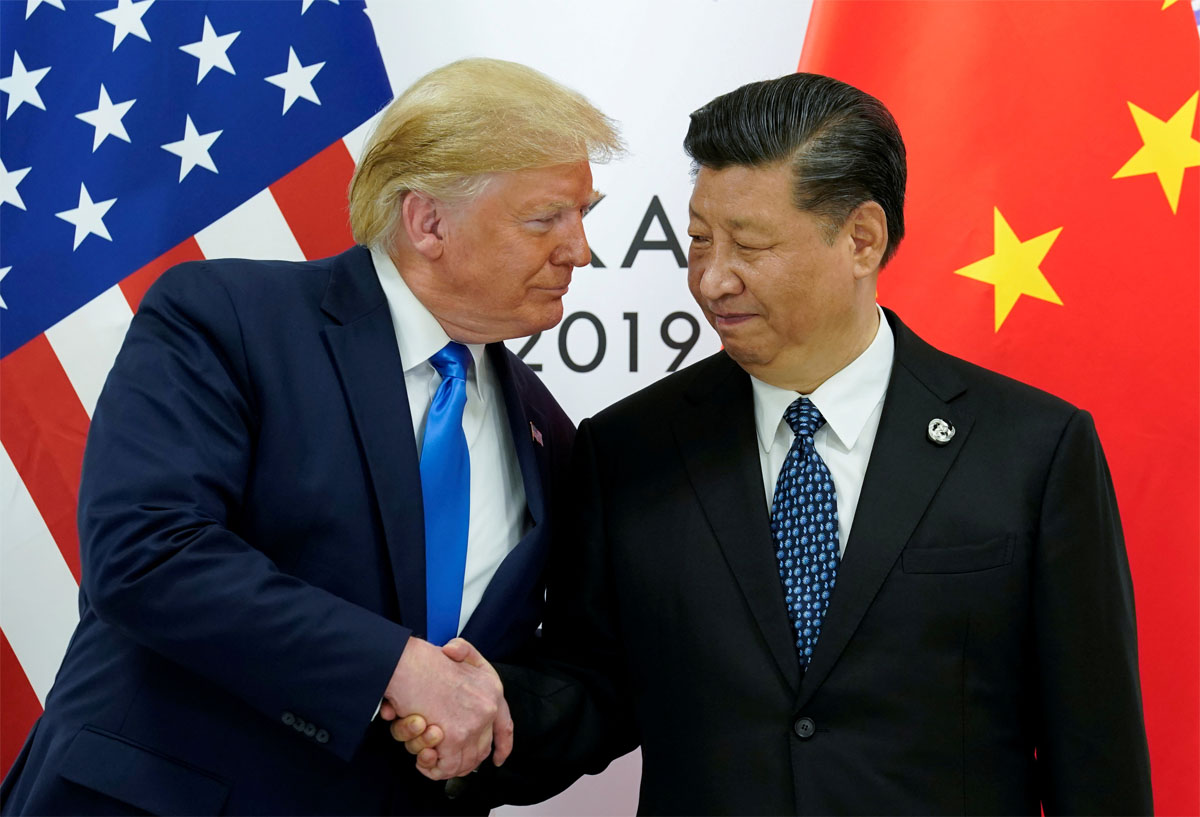
Photo Credit: REUTERS/Kevin Lamarque
A tentative has REUTERS/Kevin Lamarquebeen reached between the US and China, according to USPresident Donald Trump, aimed at easing tensions between the two nations. The proposed agreement would see China provide US companies with magnets and rare earth metals, and the US would reverse its threats regarding visas for Chinese students. Trump stated that the deal is subject to final approval from both himself and President Xi.
It followed two days of intense talks in London to resolve conflicts that had emerged since the two sides agreed a truce in May, after a rapid escalation of tariffs had nearly paralysed trade between the world's two largest economies. Last week, Trump and China's leader Xi Jinping spoke over the phone to kickstart the negotiations, which involved top officials from both countries. Details about the new agreement were limited. But officials said it would not alter the broad outlines of the May truce, which had lowered - but not eliminated - new tariffs announced by the two countries since Trump launched a new trade war earlier this year.
The two sides have, in principle, reached a framework for implementing the consensus reached by the two heads of state during the phone call on 5 June and the consensus reached at the Geneva meeting, China's Vice Commerce Minister Li Chenggang said. US Commerce Secretary Howard Lutnick told reporters the two sides had reached a framework to implement the Geneva consensus.
Once the presidents approve it, we will then seek to implement it, he added. White House press secretary Karoline Leavitt said Trump was currently reviewing the details of the deal. But what the president heard, he liked, she added. The negotiations in London were triggered in part by US concerns that China was being too slow to release exports of its magnets and rare earth minerals, which are essential for manufacturing everything from smartphones to electric vehicles.
Beijing in turn has criticised controls the US has put in place to limit the country's access to semiconductors and other related technologies linked to artificial intelligence (AI) and the Trump administration's plans to limit visas for Chinese students. Speaking to CNBC, Lutnick said the US had agreed to remove some countermeasures.